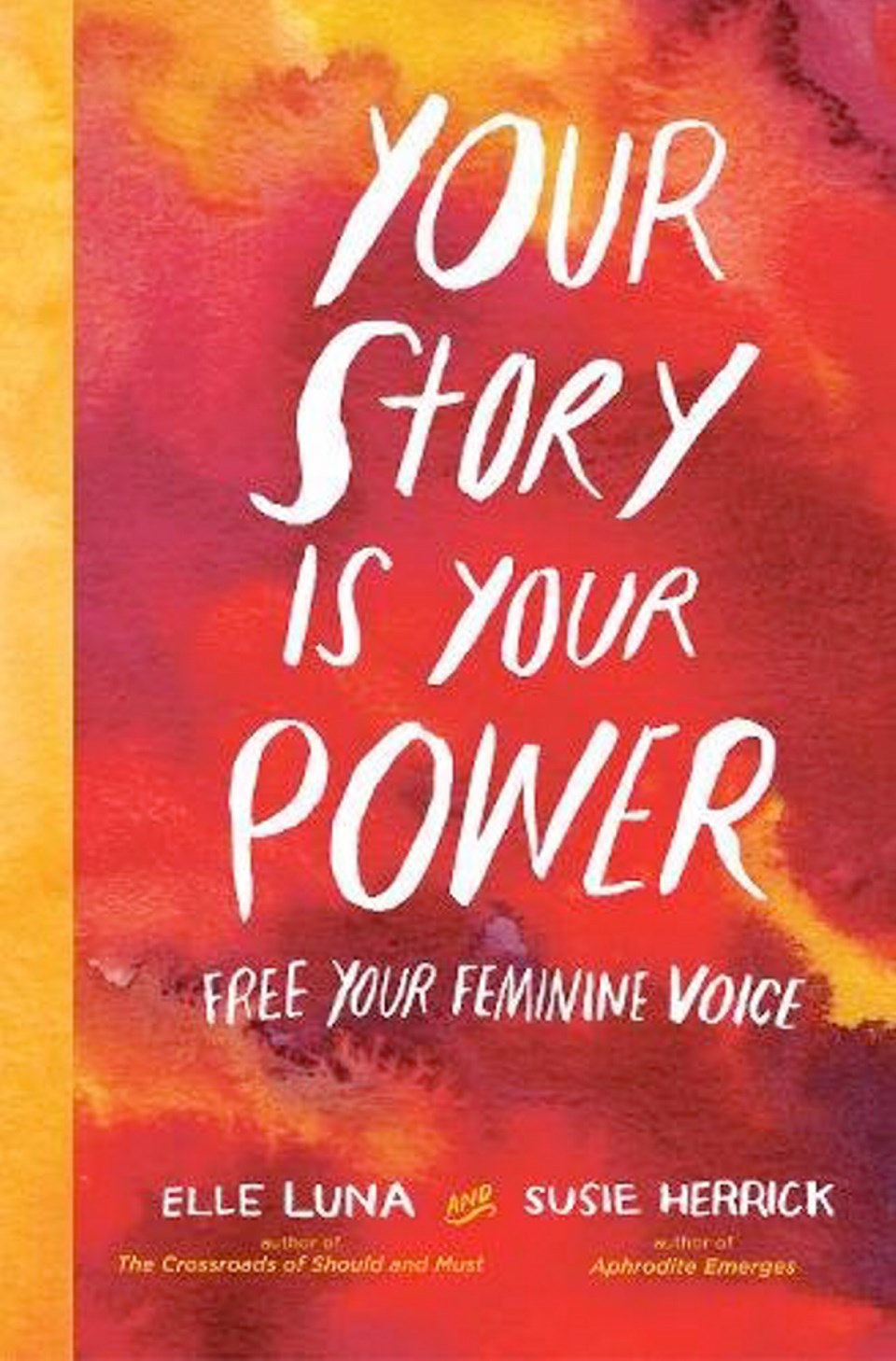Every day itтАЩs something. A tweet or a threat, a school shooting on the other side of the U.S., or a trio of women standing onstage at the Oscars, emboldened, still pissed, eyes aimed at the culture that ignited the #TimesUp movement.
You watch all this, a constant, slow burn in your gut, and want to do something with your anger and anxiety other than scrolling through, sharing stories and shaking your head.
But before you get out there with great intent and no direction, authors Elle Luna and Susie Herrick recommend you discover a little more about what you can bring to the conversation, the movement тАФ to change.
In their new book, Your Story is Your Power тАФ released last week in honour of International WomenтАЩs Day тАФ Luna and Herrick seek to help women figure out where they come from, the experiences that motivate them to take action and the role they might play in whatever battle they choose: A Reformer? A Challenger? An Investigator?
тАЬFor anyone who is interested in understanding how they activate more of their feminine power,тАЭ Luna said the other day, тАЬthis is for them.тАЭ
The book тАФ illustrated with LunaтАЩs watercolours тАФ seeks to help people тАЬlook at the story we tell ourselves,тАЭ Luna said. тАЬWho we are and where we come from and how we can move forward. The collective change is the result of a lot of individual change, and our hope is to catalyze a lot more individual change.тАЭ
With its soft focus and motivational quotes from the likes of Nelson Mandela and the Dalai Lama, the book felt a little mystical to me, like if a doula wrote a book on automotive repair.
But the book packs a surprising punch. Through a series of prompts (тАЬName eight to 10 beliefs and traits that you inherited from your familyтАЭ) and some psychological explainers, you start to understand your place in this feminine revolution.
ItтАЩs like marching orders tucked into a greeting card.
Herrick, a psychotherapist, and Luna, an artist, are holding events all over the U.S. to help people тАЬcome together and tap into their feminine intelligence.тАЭ
They start by dismissing the cultural stories we have been told тАФ Cinderella, Snow White: тАЬLike any good science fiction story,тАЭ they write, тАЬroughly half the human race is being manipulated.тАЭ
From there, they help people explore their family story and give them тАЬa launchpadтАЭ to explore their personal story.
тАЬOur goal is to inspire people at a time when thereтАЩs a lot of questions and a lot of fear.тАЭ
They hope to build on the power and strength of the #MeToo movement, Luna said: тАЬWeтАЩre hoping to add our voices to the story of brave womenтАЩs voices coming forward fully.тАЭ
Herrick writes: тАЬThe ultimate task is to find love for yourself so you can release your fears of the patriarchy. With this love, you recognize that you are the woman that you long to be. And when you reach your heart, you bring all of us with you.тАЭ
The authors conduct exercises that allow women to ask effective questions about their own journeys. How did their parents treat each other? What was each parentтАЩs role? What roles do they play in their own families?
тАЬThere no right way to do it,тАЭ Luna said. тАЬWhat we hope to do is give people the space and time to be with two people who have thought about this a great deal.тАЭ
This is the second book Herrick and Luna have worked on together. Last year, Herrick wrote a memoir called Aphrodite Emerges, about how she changed her strained relationships with the men in her life, starting with her father. Luna did the illustrations.
Not long after, Luna got a call from an editor at Workman Publishing in New York, asking them to write something that would build on the current womenтАЩs movement and hopefully impact the upcoming midterm elections.
тАЬItтАЩs beyond words,тАЭ Luna said of the actions women are taking to right institutional, cultural, sexual and gender-related wrongs.
тАЬIt is so long overdue,тАЭ she continued. тАЬIтАЩm 36 and itтАЩs time. No matter how old you are, no matter if youтАЩre a man or a woman, your race or what God you worship, itтАЩs time for this shift to continue to ripple out.
тАЬWe want to be part of the choir of voices that says: тАШEnough. This has got to stop. And hereтАЩs what you can do.тАЩ "



